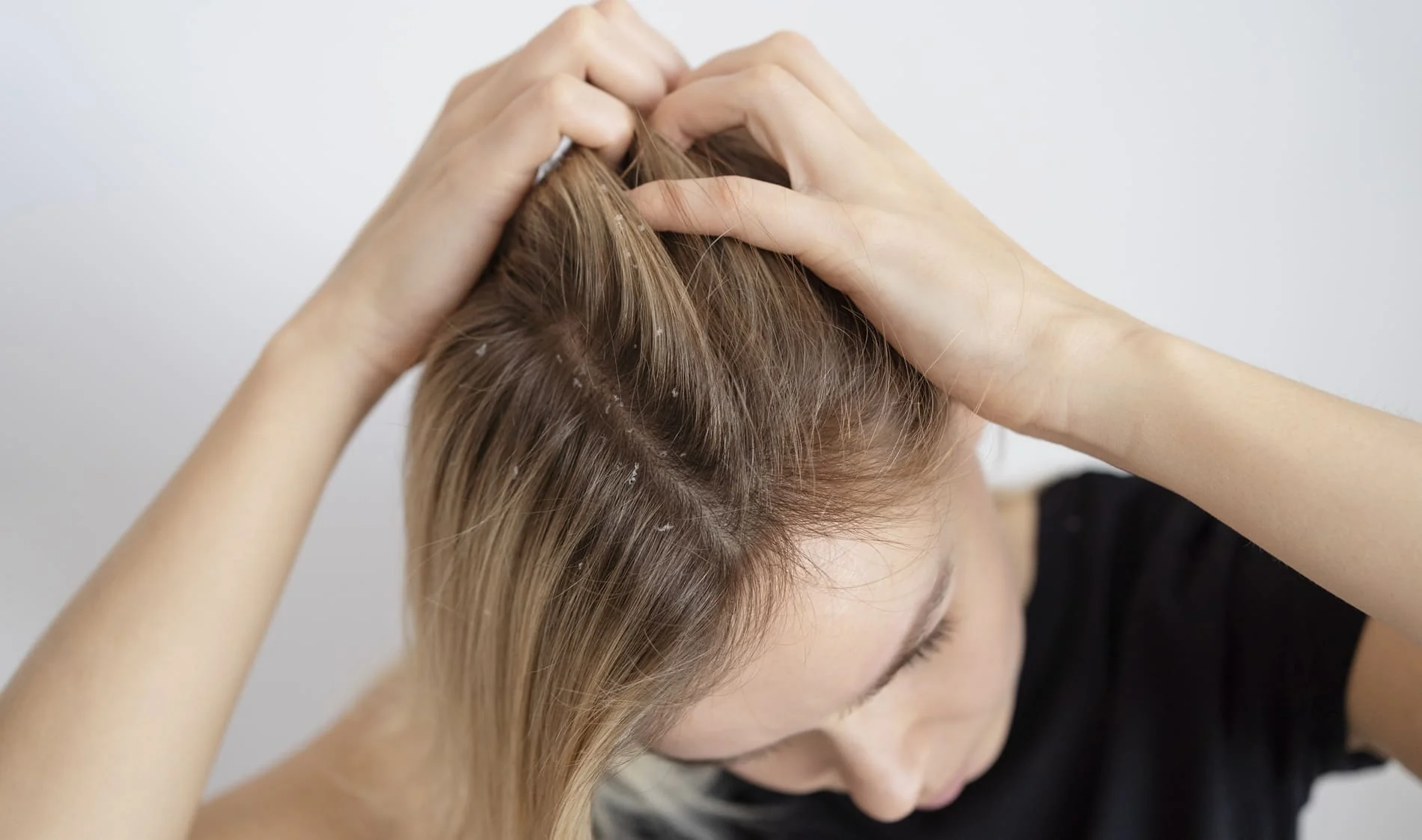
Key facts
- Dandruff is flaky skin on your scalp and in your hair.
- Dandruff is a common problem that affects most people at some time.
- If regular shampoo doesn’t help or your dandruff is severe, you can try anti-dandruff shampoo.
- See your doctor if you have bad dandruff or dandruff that is not getting better.
What is dandruff?
Dandruff is when you have flaky skin on your scalp and in your hair. Sometimes the skin flakes can fall onto your clothes — usually over your shoulders.
Dandruff is a common problem. Most people will have it from time to time.
Dandruff cannot be spread from one person to another.
What are the symptoms of dandruff?
Symptoms of dandruff include white or yellow flakes of skin:
- on your scalp
- in your hair
- that have fallen onto your shoulders
What causes dandruff?
Dandruff is due to shedding of dead skin from your scalp. Your skin is always shedding old cells, but when your skin cells clump together with oil from your scalp and hair, they become more noticeable.
Dandruff that is worse than usual may be caused by a type of yeast on your scalp.
Dandruff can also be due to seborrhoeic dermatitis. This is a skin condition that causes:
- greasy white or yellowish scales
- inflamed, red skin
- itchy skin
Other areas that can be affected by seborrhoeic dermatitis include your:
- cheeks
- nose
- eyebrows
- beard
When should I see my doctor?
See your doctor if you have:
- dandruff that is not getting better
- very large flakes coming from your scalp
Also see your doctor if you have:
- flaky skin or skin irritation in other areas, such as your face
- a painful, red or bleeding scalp
- patches of hair loss
How is dandruff diagnosed?
Your doctor will ask about your symptoms and examine your scalp and skin.
If your dandruff is severe or not responding to self-care treatments, they may refer you to a skin specialist.
How is dandruff treated?
You can treat mild dandruff by washing your hair daily with a regular shampoo until your scalp is clear. You can also use hair conditioner to prevent your scalp from becoming too dry. Rinse your hair and scalp well after using shampoo and conditioner.
Other self-care tips for dandruff include avoiding:
- hair products that make your hair oily
- hair products that contain alcohol, since they can dry out your scalp
- hair dryers and straighteners, which can dry your scalp
Anti-dandruff shampoos and treatments
If regular shampoo doesn’t work or your dandruff is severe, you can try anti-dandruff shampoo. Depending on how bad your dandruff is, it can be used twice a week or daily.
Several types of anti-dandruff shampoo are available to help treat dandruff. These shampoos may contain:
- zinc pyrithione
- selenium sulfide
- ketoconazole
- coal tar
If your dandruff stops responding to one type of shampoo, try a different type.
Your doctor may recommend other options, such as lotions, if anti-dandruff shampoo is not helping.
Can dandruff be prevented?
While dandruff can be controlled with treatment, it often comes back.
If your dandruff comes back frequently, talk to your doctor or pharmacist. You can ask them about using anti-dandruff shampoo and how often to use it to stop dandruff returning.
Complications of dandruff
Dandruff does not cause hair loss or serious problems.


